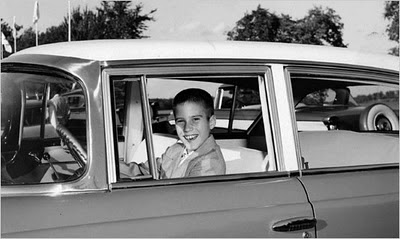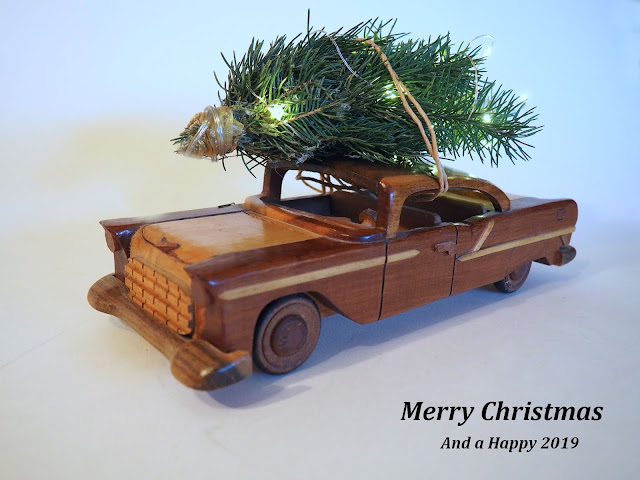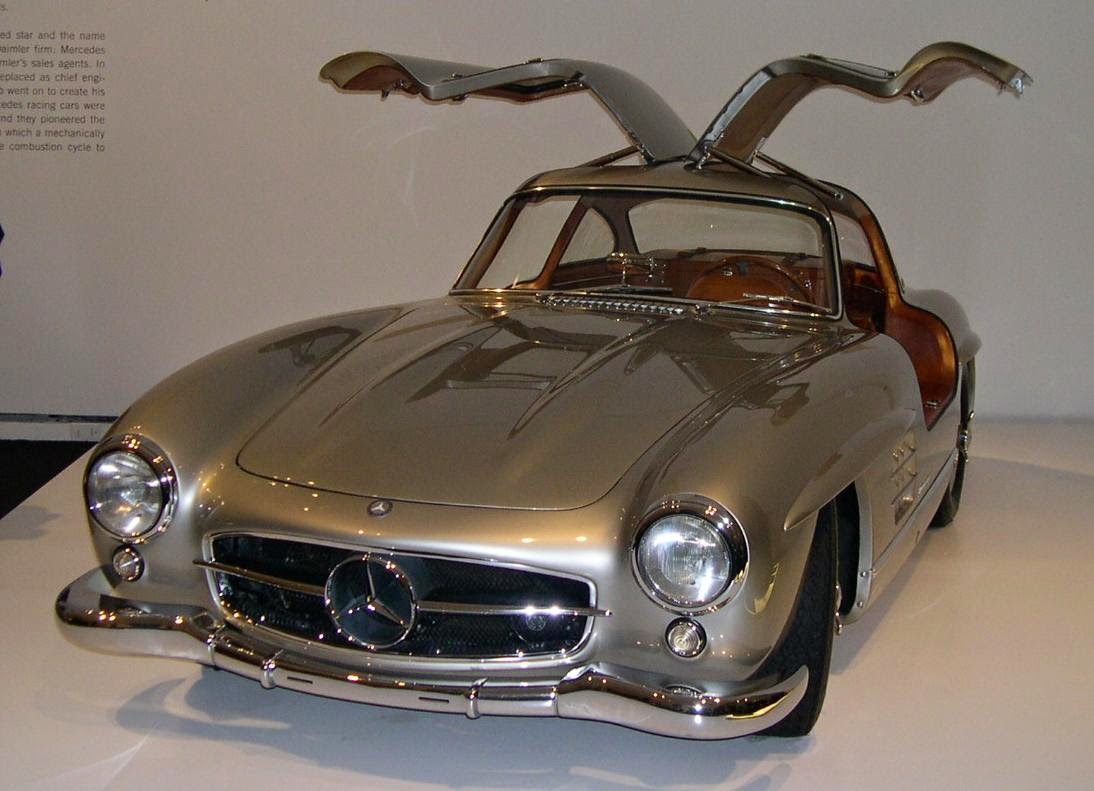Ramblers and Republicans
 |
| Mitt, 10, at the wheel of a Nash. Family photo, distributed by Associated Press. |
Romney, a former governor of Massachusetts, was regarded until recently as the front-runner for the Republican presidential nomination – and probably will be again once the party realizes that Newt Gingrich, the current favourite, is, oh yeah, that Newt Gingrich.
But it's George W. Romney, Mitt Romney's father, who makes me think of Ramblers and my father. George Romney in 1954 became chairman and chief executive of American Motors Corp. newly formed from the merger of two struggling automakers, Hudson and Nash-Kelvinator.
Tall, square-jawed, his greying hair swept back, George Romney looked every bit the executive, and he had the business drive to match. Yet he had other dimensions. Born to an American Mormon family in Mexico, he was active in his faith, serving as a missionary in France and later heading the church's Detroit district. He worked to improve schools and housing and fight racial discrimination in the Motor City.
 |
| Ford Presidential Lib. / Wikipedia. |
The strategy was good for business, setting AMC apart from the Detroit Big Three and their ever-bigger barges. Yet it also reflected Romney's own all-things-in-moderation views. "Who wants to have a gas-guzzling dinosaur in his garage?" he asked in advertisements. "Think of the gas bills!"
I can see why my father, rooter for underdogs and admirer of free-thinkers, especially those who espoused social causes, would buy a 1961 Rambler Classic 6. Unfortunately, that Rambler sedan was just a plain dog. Its all-aluminum six-cylinder engine (another innovation) never ran right. Within two years it was traded on a Ford.
George Romney would become governor of Michigan, and then himself a candidate for the Republican presidential nomination. But his pragmatic views proved confusing to party members, and he withdrew from the race.
My father didn't give up on AMC, or underdogs. In the early 1970s, a decade before American Motors would be swallowed by first Renault and then Chrysler, he bought a Hornet as the family's second car. I remember it as a serviceable little tractor. Then, in 1981, during one of Chrysler's periodic crises, he took Chrysler chairman Lee Iacocca at his word and bought a K-car, a Plymouth Reliant. Three years later he did find and buy a better car – a Ford again.
Some people wanted Iacocca to run for U.S. president, but he declined. A Ford, Gerald Ford, a Republican, did become president. He too was from Michigan, but he wasn't related to the automaking Fords.
Mitt Romney seems more polished, less passionate that his father, but these are different times that demand more sophistication. If he does become president, he could well bring to the role the same beliefs and qualities his father held. The health-care reforms the son instituted in Massachusetts were as bold as the revenue-sharing plan the father put in place at American Motors years before.
And if he doesn't, Ramblers like this 1958 Custom or Super in Cuba will suffice as the senior Romney's legacy. Its chrome has been altered, but its honest and practical essence is unmistakable, and a lasting reminder to sons of their fathers' values.



Comments